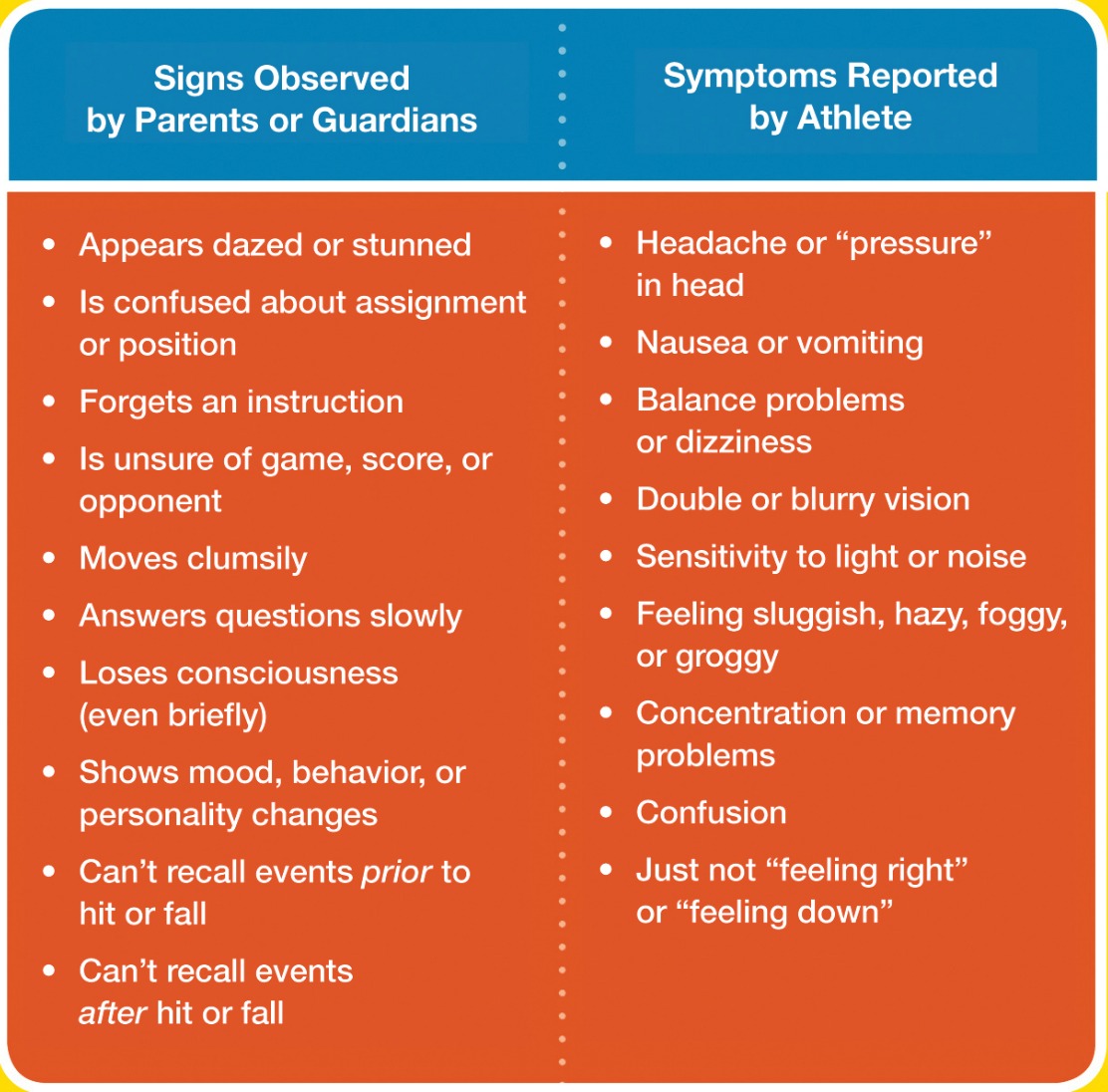Every sport carries some level of risk. In addition to football, sport-related concussions are common in other youth and high school sports including soccer, lacrosse, basketball, hockey, and
cheerleading.
Not all
concussions can be prevented, but some may be avoided. Athletes should be taught safe playing techniques and to follow the rules of the game. Reducing time in practices that results in contact can reduce potential for concussive events. Most importantly, every athlete needs to know how crucial it is to let their coach, athletic trainer, or parent know if they have hit their head or have symptoms of a head injury—even if it means stopping play.
Teach your child to never ignore a head injury, no matter how minor. If he or she reports one or more symptoms of concussion, or if you notice the symptoms yourself, keep him or her out of play and contact your pediatrician as soon as possible.
The American Academy of Pediatrics (AAP) recommends the following tips to better understand the symptoms of concussion and the risks for long-term complications:
 All athletes with suspected concussions should not
return to play until they are free of concussion symptoms and have completed a return to play progression. This may require a written release to play from a physician in most states. A doctor can confirm the diagnosis of concussion and decide when it is OK for the athlete to return to play.
All athletes with suspected concussions should not
return to play until they are free of concussion symptoms and have completed a return to play progression. This may require a written release to play from a physician in most states. A doctor can confirm the diagnosis of concussion and decide when it is OK for the athlete to return to play.
Athletes should reduce their physical exertion level and cognitive workload while recovering. Prolonged reductions may result in negative effects on recovery.
Symptoms of a concussion usually resolve in 4 weeks in most patients.
There is no evidence proving the safety or efficacy of any medication or supplement in treating a concussion or that facilitate recovery.
Retirement from contact or collision sports is an individualized decision and may benefit from consultation with a physician who has experience in retirement decisions following a sports related concussion.
All things considered, the dangers of inactivity surpass the dangers of playing a sport. Aside from having fun and staying active, playing a sport can help your child develop leadership skills, self-confidence, and teamwork and deal with success and failure. In addition, by participating in sports, children often find exercise enjoyable and are more likely to establish
lifelong exercise habits.
Additional Information: